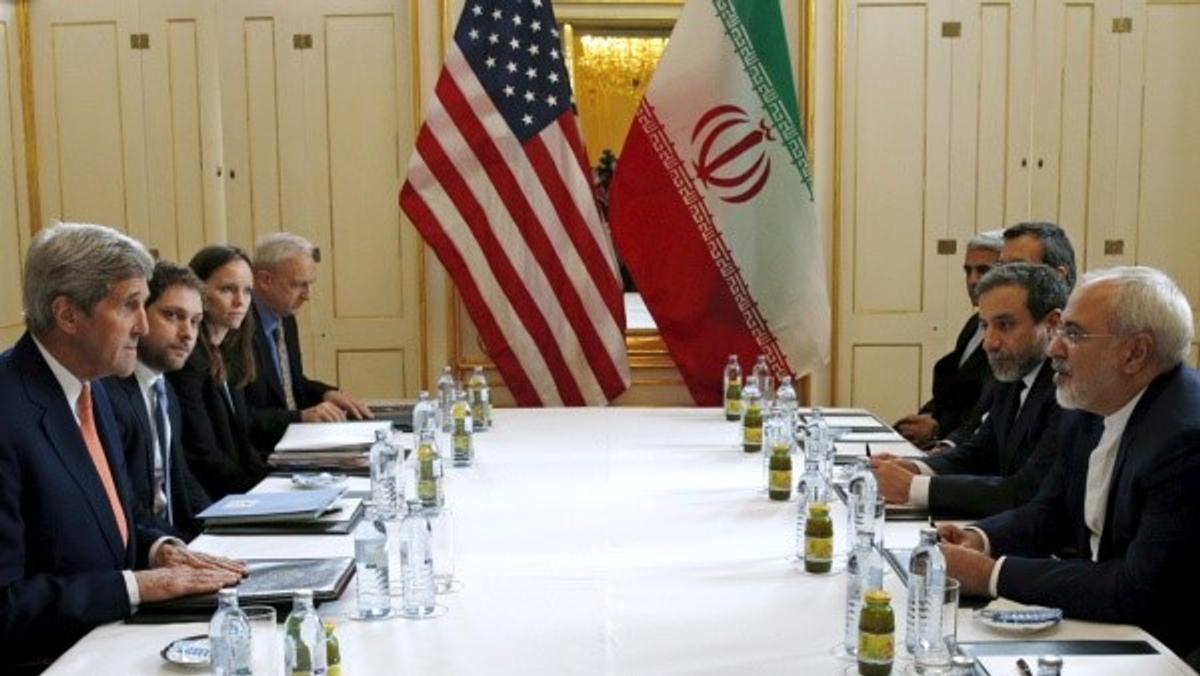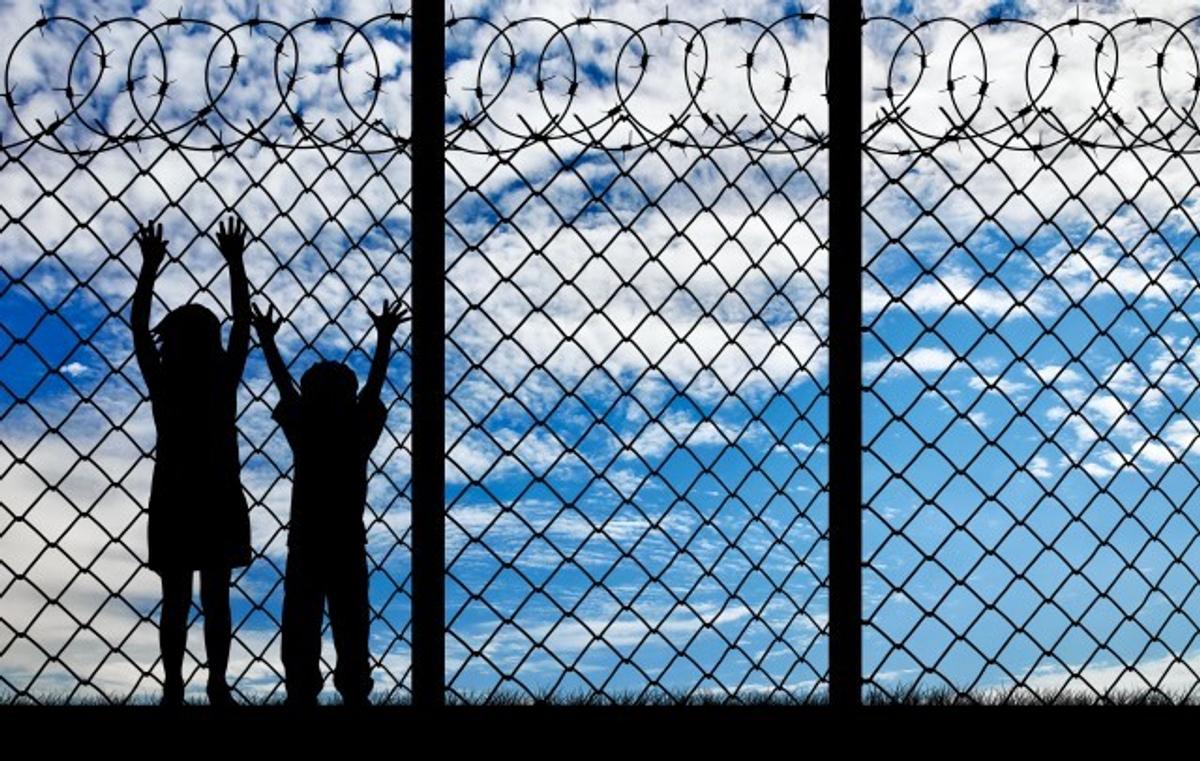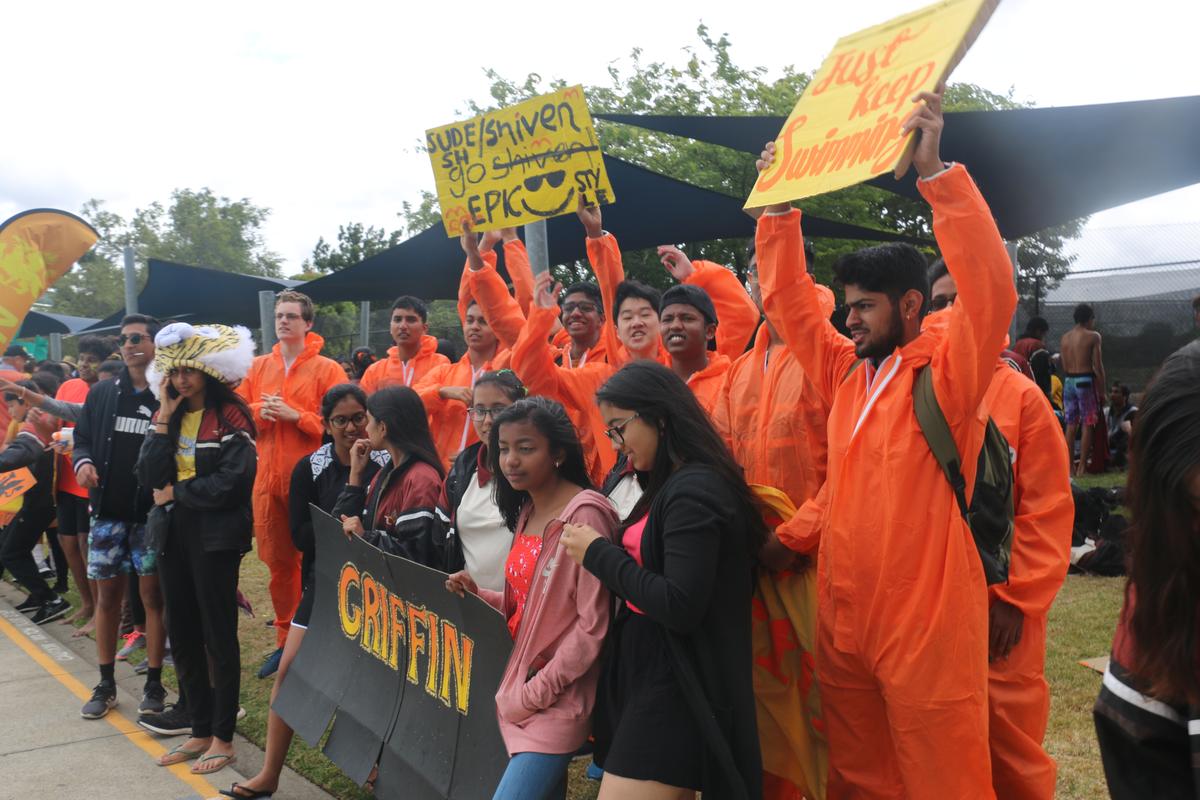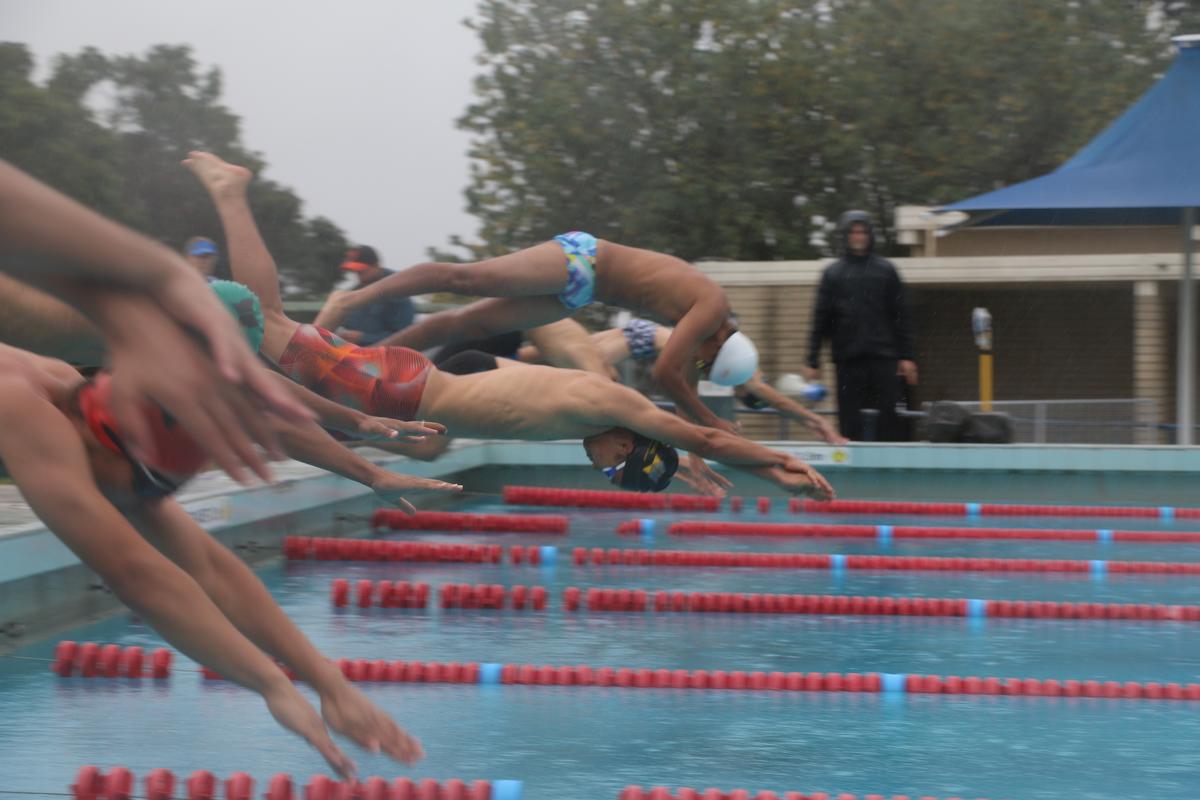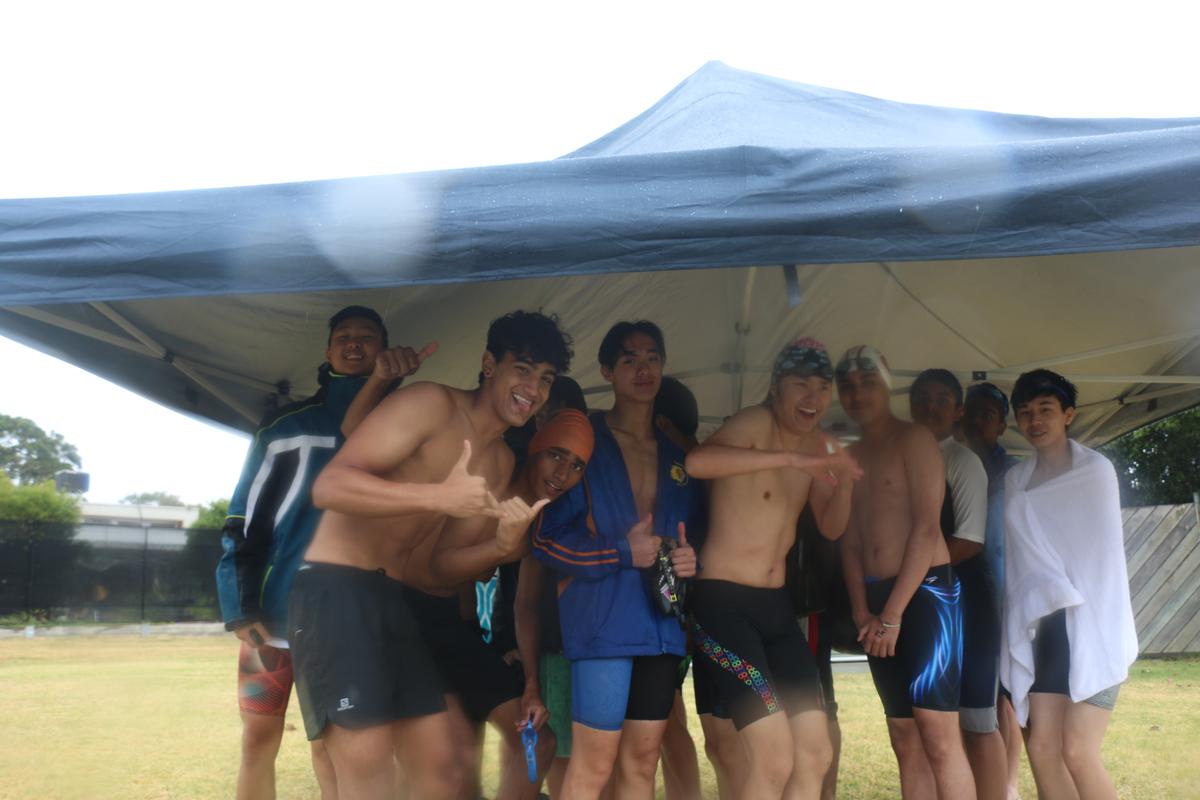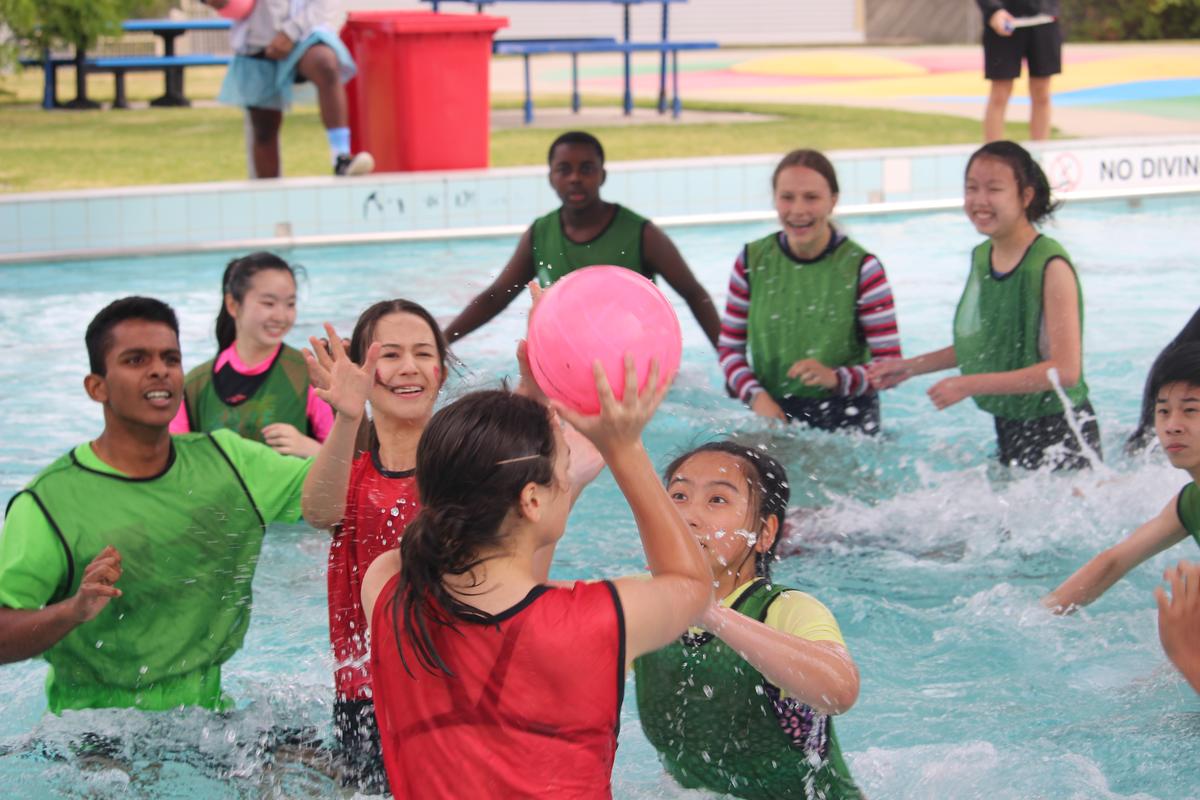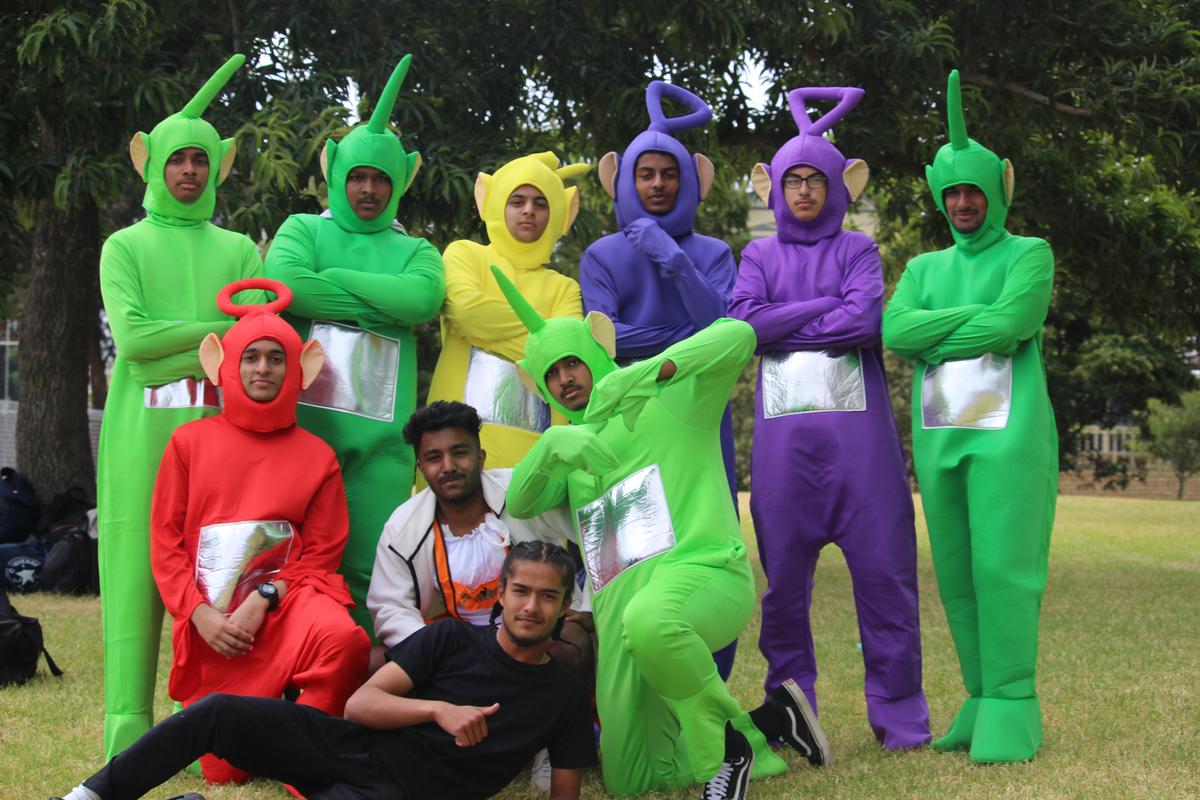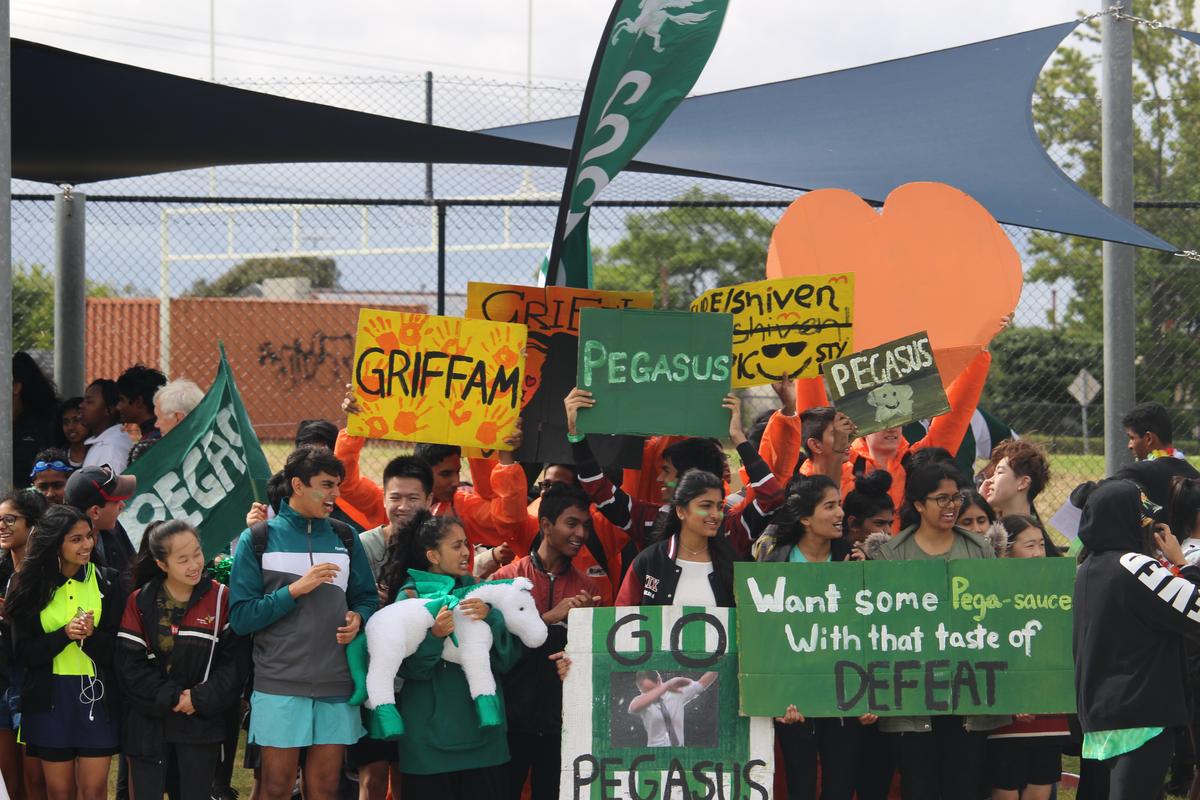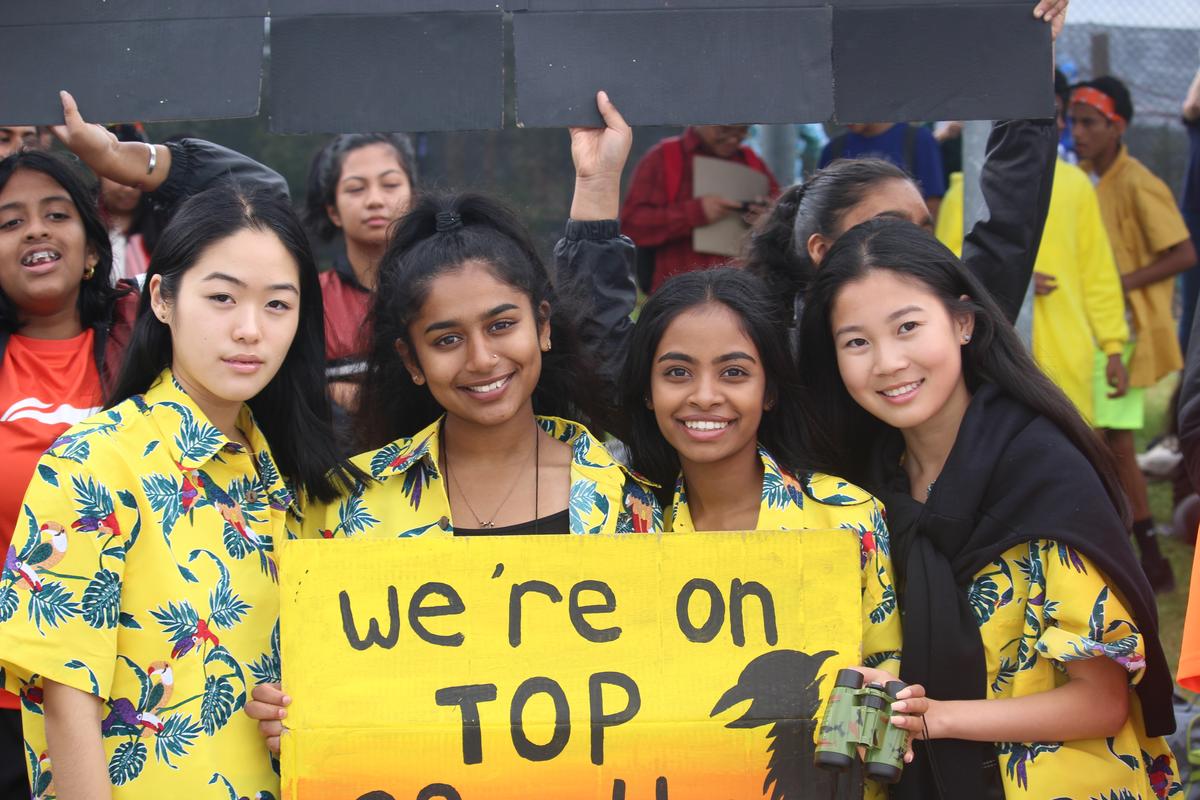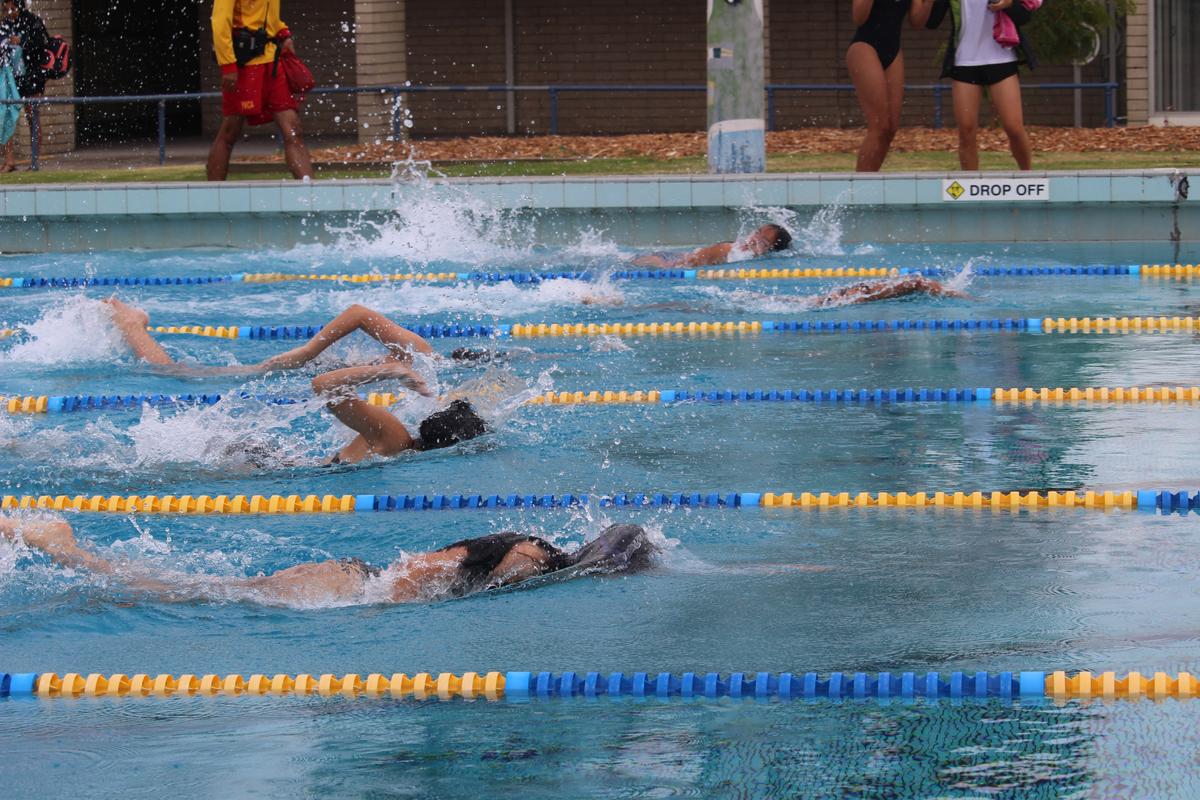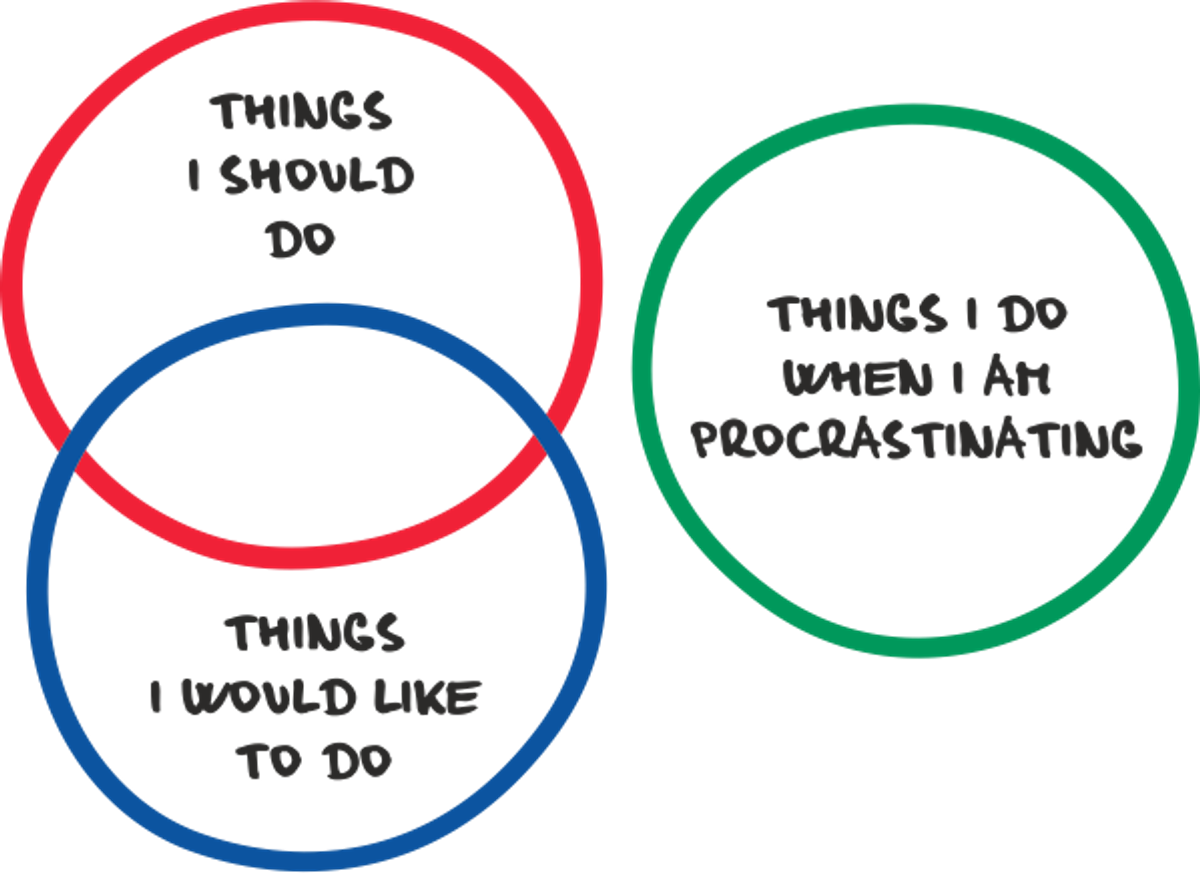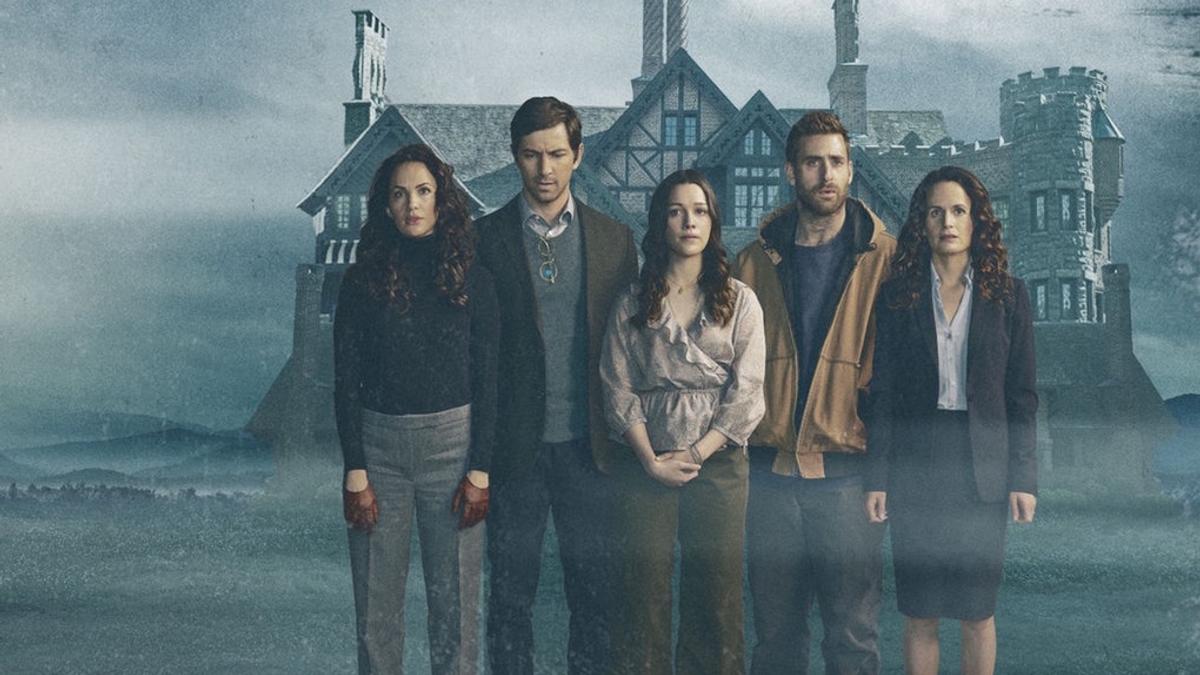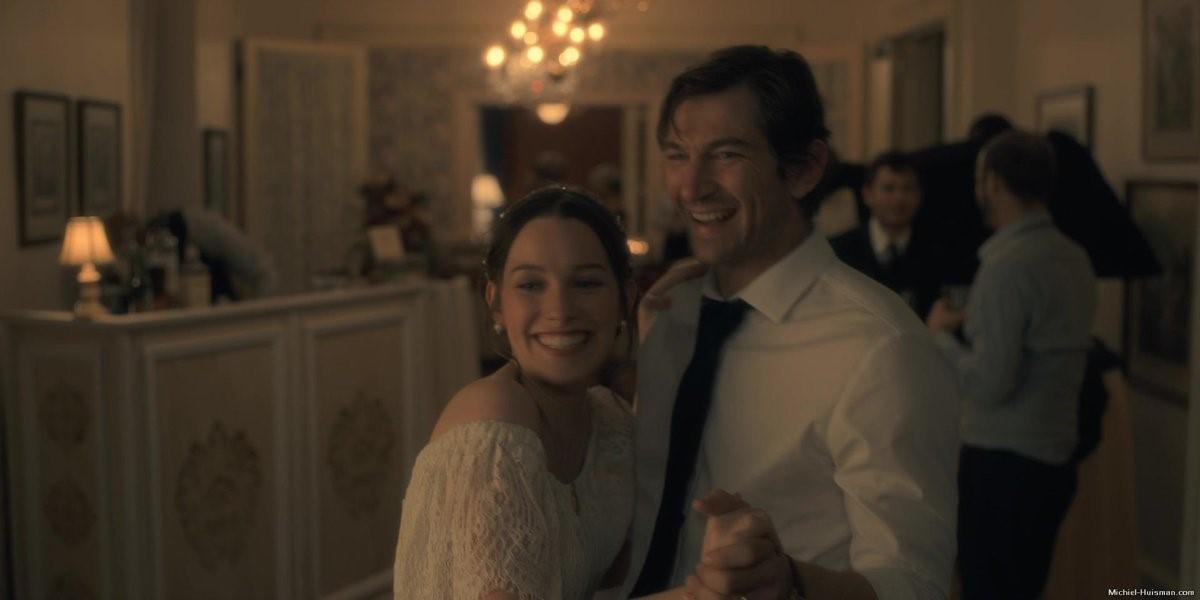Parallel - Student News

From the Editor: New year, new Parallel
Hello everyone! I hope you all enjoyed your well deserved break and have settled back into the school routine comfortably for 2019. Nossal’s Student News has undergone some changes for the new year, with a new editorial team, composed of Ruth Jarra, Movindu Gamage, Gabrielle Rota and myself. We are looking forward to cultivating a voice for the student community throughout the year.
As always, we are looking for people who are interested in writing and creating to contribute to Parallel. If you are passionate about a certain issue or want to have your voice heard, feel free to e-mail waj0007@students.nossalhs.vic.edu.au or message any of the editors on teams. We want to fill this space with the content you care about, and can only do that with your feedback and contribution!
Welcome to our 2019 debut and what I hope will be a wonderful year for Nossal.
Chaya Wajntraub
Editor-in-Chief
The Explainer: The history of nuclear politics
The establishment of the Nuclear Non-Proliferation Treaty (1968) and the Joint Comprehensive Plan of Action (2015) has allowed society to envision a world in which nuclear potential is not a cornerstone of global relations. However, with recent changes in the way US diplomacy is conducted, specifically with reference to the Trump administration, many experts have expressed grave concern about the future of non-proliferation legislation, and to what extent it is being upheld in the political arena.
It is undisputed that nuclear arsenals are incredibly powerful. This was recognised in the public sphere during the attacks on Hiroshima and Nagasaki in August 1945, signifying the end of World War II in the Asia-Pacific. Upon the understanding that Atomic weapons had the potential to create catastrophic destruction, the international community insisted upon restricting the development of the technology. Nuclear weapons have the capacity to decimate countries, continents, species. This is not a power to be wielded lightly.
Thus, the P5 states, the victors of WWII - France, the UK, The Soviet Union (Russia), China and the US - in accordance with the United Nations, formulated the Nuclear Non-Proliferation Treaty, with the aim being to “prevent the spread of nuclear weapons and weapons technology, to promote cooperation in the peaceful uses of nuclear energy and to further the goal of achieving nuclear disarmament and general and complete disarmament.”
In doing so, they became the recognised nuclear states, able to reduce their stockpiles over time but nonetheless continue to possess them. On the other hand, all other parties to the treaty, these being states who signed and ratified the agreement, are prohibited from the creation or use of nuclear technology directly related to the development of nuclear weapons. Only these five states can legally retain an arsenal, though in the fifty years since the treaty’s proposal, North Korea, India, Pakistan and Israel have each admitted to developing nuclear weapons.
If this took place in 1968, how is it still relevant to global politics in the 21st century?
Recently, nuclear arms treaties have reemerged in discussion as the Middle East has placed itself in the forefront as a significant player in the development of weapons technology. The Joint Comprehensive Plan of Action, more commonly known as the Iranian Nuclear Deal, made headlines last year when Donald Trump continued to assert that Iran were failing to uphold the treaty, despite insistence by the International Atomic Energy Agency that there was “no credible” evidence to support this. Regardless, the United States’ withdrawal from the agreement in May 2018 signified a shift from the policy-focused, multilateral approach of previous years and set a precedent for action by other European states. Without the US, it is believed that the progress made in 2015 may have been in vain. According to a White House report published on the 19th of February, the Trump administration is planning to bypass Congress in order to make a nuclear technology deal with Saudi Arabia. This raises concerns about how the US will uphold the NPT, which strictly prohibits the exchange of technology related to nuclear development.
Ultimately, it cannot be said what the next great step will be in terms of nuclear policy. In the last seven decades, the advances that have taken place and the differences in political systems and approaches have created an international community which those who established the United Nations could never have foreseen. The physical might and power that Nuclear Weapons grant states serves as an incredible protection for nations and a terrifying liability for the world as a whole. They have shaped the modern era of warfare and potentially prevented and promoted conflicts. The political arena would function in an entirely different manner without the risks that nuclear technology poses, and depending on how future policy is steered, whether humanity can appropriately manage them.
Chaya Wajntraub - Year 12
Source: Al Jazeera, Department of Foreign Affairs and Trade, RadioLiberty
Death is no longer hypothetical in offshore detention, so where is the action?
Opinion Piece
The Australian government has been accused of maintaining a ‘dangerous and sometimes fatal’ atmosphere on their offshore detention camps in Nauru and Manus Island, and ex-support workers claim that twelve people died while in detention last year because they didn’t receive appropriate medical treatment. This medical crisis is only escalating. Asylum seekers and refugees are waiting up to six years for medical treatment, even after it has been recommended by doctors, often only receiving this treatment because they are urgently evacuated to Australia when they are in a critical state. Only when court proceedings are threatened, filed, or fought does our government seem to uphold the right to life, a value protected by the Human Rights Charter and emphasised through the Declaration of Human Rights, the groundwork of which is seventy years old. The recent Bill passed presents a glimpse of hope into what is otherwise a dire situation, ensuring that asylum seekers can receive this much needed treatment. However, Scott Morrison’s recent comments, including the reopening of the Christmas Island Detention Centre, is a step backwards in relation to Human Rights. Death is no longer a hypothetical. Tragedies like this are what happen when we don’t act, and it should not take legal intervention for a doctor’s orders to be followed.
Gabby Rota - Year 10
The views expressed in this article are the author's own and do not necessarily reflect Nossal or Parallel directly.
Recently at Nossal: Community and Events
Swimming Carnival
As a result of bad weather, a booming swimming carnival had to be cut short last week, with Phoenix topping the leaderboard with the points gained in the few hours of swimming that was undertaken. Griffin came quite far behind in second place, with Garuda taking out third place and Pegasus straying behind in fourth. In a soggy turn of events, as there was no real shelter at the Doveton pool, all the student body and teachers ended up cramped in the main building of the facility. However, the level of participation that was evident at the pool, particularly by the Year 9s was great to see; even in the rain our newest cohort competed with high spirits. Cheers to you all on your efforts! The wet timetable resulted in the students heading back to Nossal where they did various activities while waiting to be picked up by their parents/guardians.
Inter-school sports
As of the week starting on the 18 February, inter-school sport tryouts have officially started for the Term 1 sports of Cricket, Volleyball, Tennis and Girl's Softball. We encourage all students to have a go at a couple of these sports, as Nossal values participation from the student body in student-based competitions and events. Plus, it’s just a bit of fun to participate, with the added reward of possibly making it onto a team and representing Nossal in these sports.
Casey Tech School
Another exciting development is the opening of the new Casey Tech School in Term 3 last year, which recently began their student programs for schools all around the area. The Nossal Year 10 cohort will be taking part in the Tech School’s enterprise program throughout the year, with Garuda House being the first to experience the facilities during week 4 of Term 1.
Their brand-new equipment allows students to experience a new era of technology and allow for it to enhance what they learn and the way they learn it. Being a student of the class of 2021 myself, I am particularly keen to get some of this hands-on experience that the staff at Casey Tech are giving us, so I personally can’t wait until our House gets to visit them!
Movindu Gamage - Year 10
Taking charge of your education
Opinion Article
If you’re reading this, you are a student attending Nossal High School. Or a teacher. Or a parent, alumni or a younger sibling of a student at this school. But in some way, every person reading this right now has a connection to Nossal, be it as small as simply reading these words.
And these words are needed.
Nossal students are not ignorant of the privilege, expectations and pressure involved with attending a school like theirs. Outside from your own family views, there is also the school to consider as well as the wider community looking on. One in four of Australia’s students drop out of school. Take another step back. There is the awareness of the privilege to not only be a student in such a school, but to be a young adult with shelter, an education and a safe livelihood. In Australia, more than one third of the homeless population are teenagers or young adults, which is at least 36,000 people. There are expectations imposed by strangers, societal values that may shape student actions and beliefs for better or worse. There is the pressure associated with standards and labels, limitations placed on every student for as long as they can remember. These kinds of influences pressure a person to mould themselves to what others see as appropriate.
Why is this message for students? Well, reader, look at yourself. Even if you are not a student, is there not an undeniable existence of these factors in your life? Of expectations and pressures?
If you are a student, this is a call for you to not only overcome these scrutinies, but to also encourage others to do the same. Nossal is a breeding ground for these kinds of mindsets and we, as the student body, teachers and parents, must motivate others to step outside the box they’ve been placed in. If academics are not your only interest, there are so many clubs and sport groups available for you to join. If you are passionate about something you feel your peers or the community should be aware of, step out and show them exactly what it is. Nossal’s environment has continuously been labelled as ‘welcoming’, but there need to be acts behind this.
Stepping out of societal pressures is difficult without support. This support must come from peers and authorities alike. Let us work together to ensure Nossal remains a safe and flourishing school community.
Ruth Jarra - Year 11
The views expressed in this article are the author's own and do not necessarily reflect Nossal or Parallel directly.
Thinking beyond subject domains
As we progress through school as young adults, our awareness of the world around us increases, the bubble of school and academics gradually expanding to include the community and the workforce. When we view the world through our rigid and uniformed high school lens, the political undertones in every workplace and catastrophic inequalities that seem to have a logical solution seem indecipherable. Yet, as every graduating class from school or university does, we enter this world to join the ranks of men and women in the system and cease to question it.
Nossal exalts the adult learning environment and well-rounded students it claims to provide. But what does this entail? What more can we apply our critical thinking and keen observation to beyond study scores and ATAR?
VCE has been making an effort to expand each discipline and include their historical, social and analytical implications. Those doing Chemistry will recognise the inclusion of sustainability and long-term benefit in fuel choice in the curriculum and Biology stresses the importance of discussing ethical and social values regarding genetic manipulation. VCE philosophy equips students to analyse the implications of technology on a good life and how we can reconcile ancient Greek philosophy with the judicious use and application of innovation. Nonetheless, VCE and its study-design governed subjects align our sensibility to view problems and solutions from the perspective of a single subject. There are certain types of questions that you answer mathematically, and certain types you answer comprehensively and expressively. However, the challenges that the 21st century, and indeed much of human history present or have presented cannot be solved by taking such a narrow view.
In a post-truth era, with looming giants like fake news and communal disharmony, the nature of narrative and the importance of historical evaluation is highlighted. The discipline of arts has been and is considered everything from an elitist indulgence to a domain subservient to the sciences, while the sciences take centre stage as mechanical and solely objective. There is no argument of dominance to be made here. We must, while upholding the differences between them, work towards a collaborative rather than a competitive mindset. No issue can be viewed through the lens of a single subject. Collating and presenting scientific data is not enough to combat global warming, just as a purely empathetic, altruistic model is not the answer to poverty. Society is a cross section of the myriad of values and disciplines that exist in the world, and in remaining within the concrete divisions of subjects we deny ourselves the tools to address these problems.
Statistically and from the general orientation of our academic community, we see the increasing numbers of students who study Science and Maths subjects, English mainstream among them only because it is compulsory. The promise of secure jobs and stable pathways prompt an inflow of students in one direction and increase hesitation to pursue a Humanities or linguistic pathway. As the world and the implications of the Anthropocene heighten, we must move away from isolated pathways and work towards an extensively integrated workforce focused on issues and solutions and including all perspectives within it. We don’t need doctors, we need public health advocates. We don’t need engineers, we need architects of sustainable innovation. We don’t need philosophers, we need ethical, historical and comprehensive social analysts. In essence we must move, from aspiring to a career that caters to a specific skill set to developing skills that enable careers the world requires.
This may seem like a lot of ideological fluff, and to some extent it is. It is impossible to suddenly break away from the shackles of VCE and rewrite our educational system. We may not even be able to study subjects based purely on interest, but there are other things we can do. While respecting and adhering to the system we are in, we must go beyond textbooks to seek information. Visit the The Guardian or The Age website daily, read the feature articles and editorial pieces. There is no better way to assess the social temperature of the community we live in than to read the news. Join clubs and societies that seek to explore or empower a certain aspect of the world. You do not need to be enrolled in VCE Global Politics to develop a deep understanding of international issues, just as you don’t need to be doing Biology to understand the double-edged sword that is gene editing. Find ways to participate in your community – volunteering with refugee organisations or cancer care organisations will gift you more than an impressive resume.
As students attending a selective entry school, amid peers of the highest intellectual and critical capacity, we must take care to not exist in a bubble of studies and school but to consciously seek out and involve ourselves in the happenings of the world. We must think of ourselves not just as students but as citizens. We need not be adults and working members to actively engage with the community and hold strong ,informed opinions about socio-political issues. In order to be the much quoted “leaders of tomorrow”, we must be diligent and demanding citizens of today.
Nanditha Hareesh - Year 12
Why do we procrastinate?
It’s now week 4 of the year, everyone has settled into their new classes and into some sort of routine that they lacked during the holidays. Perhaps the initial excitement of starting a new year is beginning to wear off – in the first few weeks of the term, everyone seems to be organised, staying on top of their work, maybe even getting enough sleep. As it goes on though, I suspect I won't be alone in sinking into my old ways of procrastinating as the workload piles up, just like I am now as I write this article, and maybe you are too as you read it.
So why do we procrastinate, if it causes us so much stress? While there seem to be many articles in the media about how to rid oneself of their procrastination habit, there is also value in trying to understand why we do it in the first place.
Though they vary greatly between people, the main reasons for procrastinating can be summarised into the following three:
1. Fear of failure
When surrounded by so many successful people on a daily basis, it is no surprise that so many of us have developed a fear of failure. Procrastination often compromises the quality of the work that we eventually do, and in doing so, creates a sort of safety net. If we don’t do well in the task or whatever it is leading up to, it’s so much easier to blame it on the fact that we did it at the last minute than to confront our failures. It’s obvious how this can be detrimental in the long run though. Cramming for a test or SAC at the last minute as a result of procrastinating often doesn’t help us to retain that information for very long at all. By the time the end of year exam comes around, we’ll be wondering whether we ever learnt it in the first place, decreasing our confidence in ourselves, causing us to procrastinate more and perpetuating this dreaded cycle.
2. Perfectionism
A community of high achievers like Nossal is an ideal breeding ground for perfectionists. We often get ourselves into the ‘all or nothing’ mentality and convince ourselves that if we don’t complete a task perfectly or we make mistakes, it is no longer worth doing. Becoming overwhelmed by unrealistic and often impossible expectations of ourselves, we instead give up and leave it until the last minute, relying on the adrenaline rush that a deadline gives us to complete the task.
3. The education system is flawed
It is a truth universally acknowledged that there are very few people who genuinely enjoy every part of every subject they do, especially in VCE. Often, we choose subjects based on a combination of enjoyment value and aptitude for the subject. In my experience though, and probably that of many of my peers as well, we have found that in many subjects, especially those in the Maths and Science domains, our success is more contingent upon our ability to carry out menial calculations and answer questions in the exact way that VCAA prescribes than actively engaging with the content and obtaining a holistic view of the discipline. It’s difficult not to lose motivation when a subject we had enjoyed in earlier years of our high school education doesn’t live up to our expectations of it at VCE level, thus causing us to procrastinate. In a similar way, being given seemingly trivial tasks to do frequently can feel bothersome and meaningless, and even though we know that they are worth doing and our future selves will be grateful, without much of an immediate reward or pressure, we are easily tempted to neglect them.
So next time you find yourself watching random YouTube videos for the fifth consecutive hour, writing elaborate to do lists of all the things you should be doing, reorganising your sock drawer by colour order or whatever else you do to procrastinate, try to take a step back and identify why you’re doing that. Only then can you choose strategies tailored to your situation to try to overcome this habit that seems to be ruining so many of our academic careers.
Anonymous Contributor
The Haunting of Hill House
Film Review
Inspired by Shirley Jackson’s gothic horror novel of the same name, Netflix’s The Haunting of Hill House is a unique take on the widely popular supernatural horror genre of the last decade. The ten-episode series depicts the events of 1992 and the present day, following five children as they reflect on the impact of their childhood experiences and how they have manifested in their adult lives. Rather than prioritising shock-value, the show reveals a tale of psychological horror, weaving the tale of the Crane family into the events and circumstances of everyday life. The plot-twists are nuanced and complex, creating an atmosphere of uncertainty amongst the characters that firmly grips the audience. The Haunting of Hill House is captivating, honest and serves as an insightful reflection on the human experience. The incredible cinematography, specifically in “Two Storms”, which was filmed in only five takes, heightens the suspense and realism of the show, despite the supernatural themes. Mike Flanigan’s craft is certainly presented through the series, with the finest details establishing meaning and significance to each storyline.
Let it be known, however, that the series discusses several topics and ideas not ordinarily considered in the horror genre. The psychological focus of the adaptation makes for a greater level of complexity, which doesn’t shy away from sensitive discussions. As such, the mature focus of the show lends itself to those who are well versed in the genre and enjoy films of the type. Ultimately, the show presents the ways in which people create ghosts, for themselves and for others, and it does so in a way that artistically ties together the past, present and future. Anyone who has a spare few hours ought to watch The Haunting of Hill House and take a moment to consider exactly what it is that humanity is haunted by.
If there are any books, films or other media you would like to see reviewed here, feel free to message me on Teams and I will do my best to mention it in the next edition.
Chaya Wajntraub - Year 12
To be noted: The program reviewed is classified as for mature audiences; discretion is advised.
The price of a story
Creative
There’s a coffee stain peeking out underneath my notebook. The table is an off-white, the kind of shade which makes you tilt your head and wonder if it was the lighting basking the room with a sickly glow - like organic almond milk or the walls of a waiting room sans the vividly coloured posters promoting gastric health.
I move the notebook and trace it with my eyes first, then my hand reaches out and does the same. It looks like a tree ring, The train rumbles and groans. I don’t particularly understand how trains work but still I sit, eyes skipping over every tree and thinking of tree rings. As I stare, I harvest a tree and lay it down to rest and hack and slash at the trunk until it shares with me the story of its life and I am full.
“You want to know their stories?” Seemingly out of nowhere, a voice asks. And the strange thing is, I didn’t startle.
A woman sits across from me, looking both old and inexplicably young at the same time. Her hand traces the ring for herself and unable to say why, I shiver. Her gaze finds my blank pages and says, "I can tell them to you."
A quick look at the time and I say, "Make it quick, won’t you."
She picks the notebook up and turns to the front, hands reverently turning the pages. “This one,” she begins, hand moving across the page, “was the first ring.” And finally, I understand.
Ruth Jarra - Year 11
Get in touch
Chaya
Editor-in-chief

